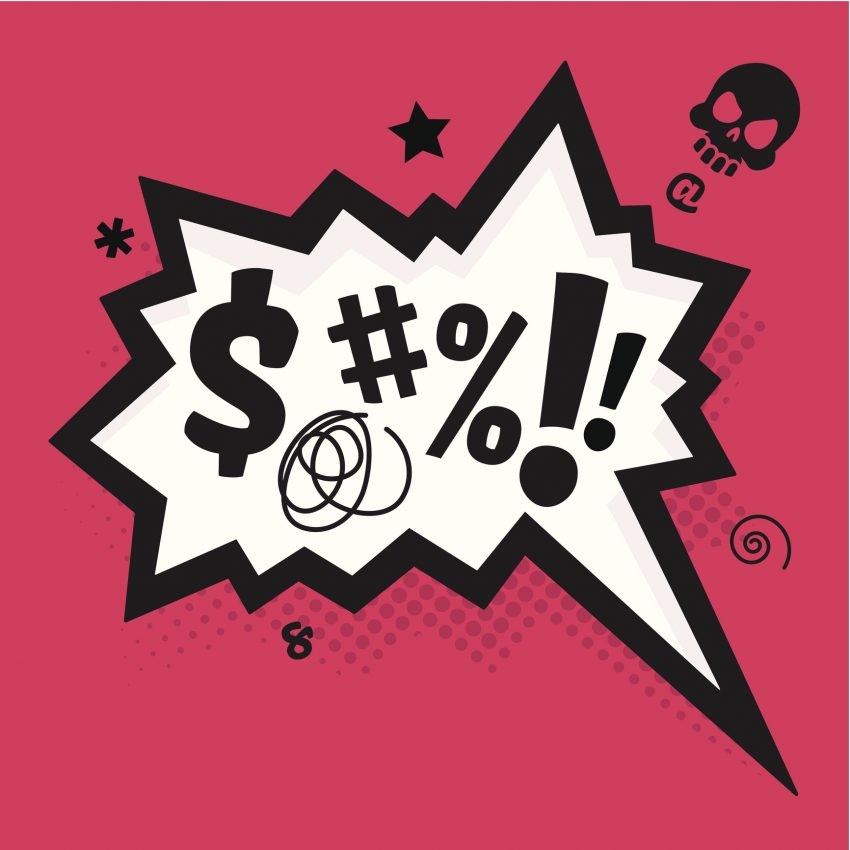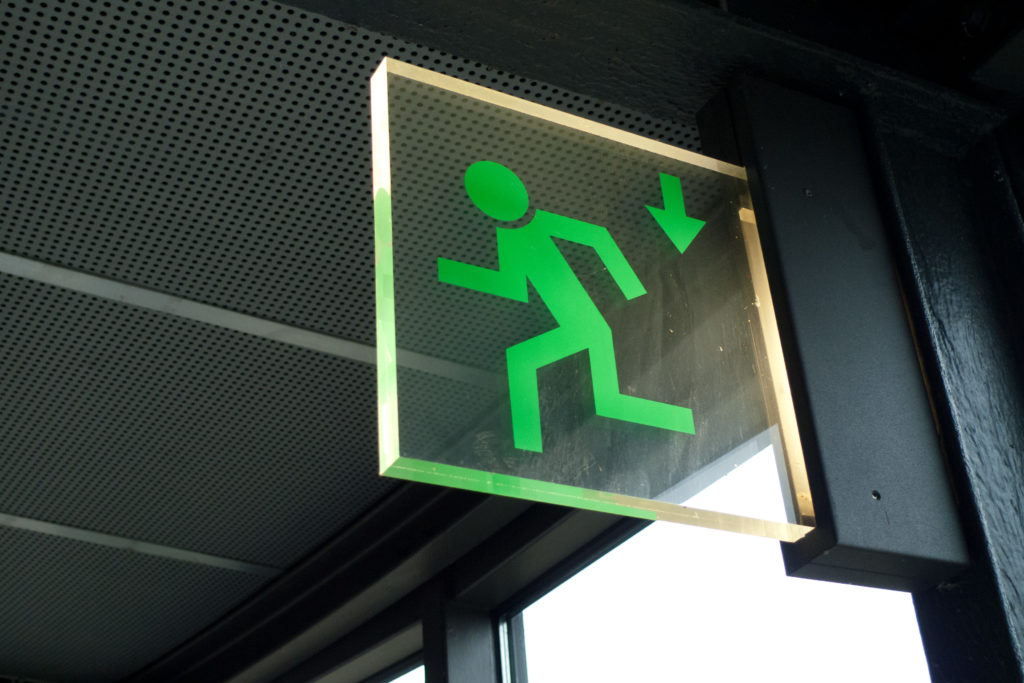
Jurons, as Québecois swears and insults are called, are used to add color to everyday conversations. They are discussed in a separate chapter because they have their own usage and inflection.
Here you will learn about the most important words in this part of the language. After this chapter, you will have an idea on how to use this colorful language. Be extra careful in using them because they can offend people when not used in a proper context.
The Nouns
Most jurons originated from things related to a Roman Catholic mass. The reason behind this religious overtones is the domination of religion in their country during the 18th and 19th century.
Roman origins
Swears and insults : 1
| ENGLISH | FRENCH | MEANING |
|---|---|---|
| Ciborium | Le Ciboire | Dish used for distributing the host in the Roman Catholic mass |
| Virgin | La Viarge | Reference to the Virgin Mary |
| Tabernacle | Le Tabarnac | Place where the host is kept |
| Calvary | Le Calvaire | Place where Christ was crucified |
| Ciborium | Le Ciboire | Dish used for distributing the host in the Roman Catholic mass |
| Host | Le Ostie | Body of Christ in the Roman Catholic mass |
| Chalice | Le Câlisse | Cup used for receiving wine in the Roman Catholic mass |
Jurons have their individual meaning but they are interchangeable when used as an expletive. When jurons are used individually, they have almost the same meaning as “shit!” or “god damn”.
Typical examples of uses might include:
Swears and Insult : 2
| ENGLISH | QUEBEC FRENCH |
|---|---|
| Shit, it’s cold! | Crisse qu’y fait frette ! |
| Goddamit that guy is an idiot! | Sacrament que ce gars-là est épais ! |
| I’ve goddam well had it! | Câlisse que j’en ai marre ! |
| I’m so goddam sick of this! | Ostie que je suis tanné ! |
If you want to express frustration, here are the combination of words that you could use. These expressions are very common in Québecois, so you’ll learn these easily.
Ostie de crisse de Tabarnac !
Ostie de ciboire de calvaire !
Do you want to add emphasis to your sentence? Ostie is the word to use.
Swears and insult : 7
| ENGLISH | QUEBEC FRENCH |
|---|---|
| I’ve goddamwell had it! | J’en ai marre, ostie ! |
You could also take any noun and add être to it when you want to express how upset you are.
être en tabarnac – to be pissed off
être en câlisse – “ ” “ ”
être en crisse – “ ” “ ”
Swears and insult : 8
| ENGLISH | QUEBEC FRENCH |
|---|---|
| I’m really pissed off right now! | Là, je suis vraiment en tabarnac ! |
| The conversation we had left me furious. | La conversation qu’on a eue m’a mis en beau calvaire. |
When the partitive “en” is used in jurons, it generally means “a lot of”:
Swear and insult : 9
| ENGLISH | QUEBEC FRENCH |
|---|---|
| I had one hell of a lot of food. | J’en ai eu de la bouffe en tabarnac |
Get creative because there are infinite variations of those words. If you don’t really swear that much, you can use Câlisse and Tabarnac for a less-offensive version. Those words is like saying “Dammit!” or “Damn!” in the English language:
Câlisse: Câline, Calif, Caltor.
Tabarnac: Tabarnouche, Tabarouette, Tabarslak, Taboire, Barnak, Tabarnane, Tabarnic,Taburn,
We call the less offensive variants, petits jurons. Here are some examples:
Calvâsse
Cibolle
Maudit
Maususse
Mautadine
Mautadit
Jériboire
Simonac
Saint-Gériboire
Saint-Sacrifice
Torrieux
The Adjectives
You can use jurons to add meaning to a noun. You can also substitute it to the word “very”. Just remember that the word being modified determines the gender of the juron.
Swears and insults : 3
| ENGLISH | QUEBEC FRENCH |
|---|---|
| That’s one damn fine looking girl. | Ça, c’est une ostie de belle fille ! |
| My boyfriend is a goddam idiot! | Mon chum est un crisse d’idiot ! |
| You’re a real jerk. | T’es un criss de cave, toi |
When making an oath, modify nouns with crisse and câlisse to make it sound stronger. Oaths are stronger with those words than without it, as shown in the examples above.
The Verbs
Jurons often have their own verb counterparts.
Swears and insult : 4
| French | English |
|---|---|
| Se crisser de (quelque chose); Se câlisser de (quelque chose); Se tabarnaker de (quelque chose) | To not give a damn about something. |
… and so on. For example:
swears and insult : 10
| ENGLISH | QUEBEC FRENCH |
|---|---|
| I don’t give a damn if it’s cold, I’m still going skiing. | Je m’en crisse s’il fait froid, je vais quand même aller skier. |
You can increase the effect of verbs if you add the word contre before it. – s’en contrecâlisser, s’en contrecrisser. For example:
Swears and insult : 5
| French | English |
|---|---|
| Je m’en contrecâlisse s’il vient avec ou non. | I really don’t give a shit if he comes along or not. |
The words câlisser and crisser could also specify direction, or express carelessness in throwing something
Swears and insult : 6
| French | English |
|---|---|
| Je vais crisser ça dans les vidanges. | I’m gonna throw it the hell out. |
| Je vais le câlisser dehors s’il continue de même. | I’m gonna throw him the hell out of here if she keeps on like that. |



